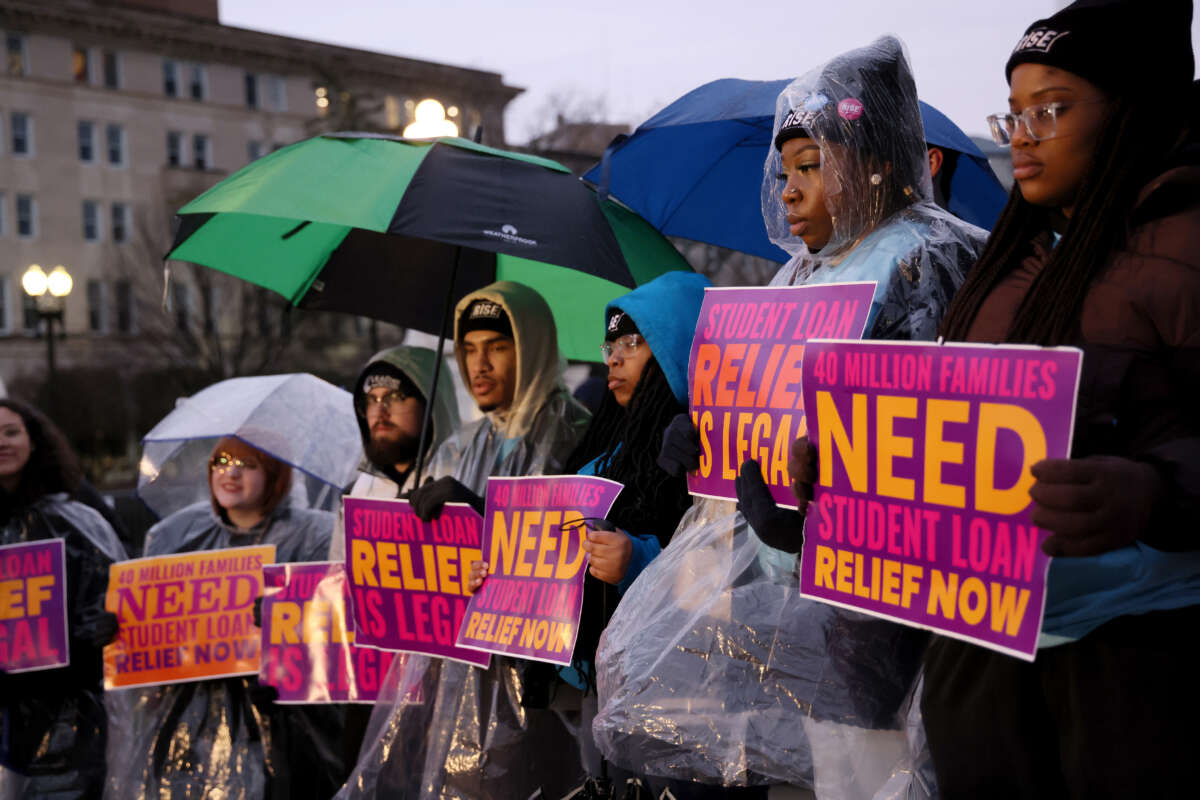The Consumer Financial Protection Bureau warned Wednesday that millions of federal student loan borrowers in the U.S. could struggle to make payments once forbearance ends in late August — a timeline codified by the debt ceiling measure that President Joe Biden signed into law over the weekend.
The consumer agency, also known as the CFPB, has been tracking the finances of student loan borrowers throughout the coronavirus pandemic, during which repayments and interest have been frozen — collectively saving borrowers hundreds of billions of dollars.
But in an update on Wednesday, the CFPB estimated that more than one in 13 borrowers are behind on payments other than their student loans, financial pain that will intensify once the student loan payment pause lifts.
“These delinquencies are higher than they were before the pandemic, despite a small seasonal decrease in the most recent data,” wrote CFPB economists Thomas Conkling and Christa Gibbs.
The pair also found that roughly one in five of the 32 million federal student loan borrowers in the CFPB’s sample “have risk factors that suggest they could struggle when scheduled payments resume,” such as “pre-pandemic payment assistance on student loans” and “delinquencies on other credit products since the start of the pandemic.”
“As of March 2023, around 2.5 million student loan borrowers had a delinquency on a non-student loan, an increase of around 200,000 borrowers since September 2022,” the CFPB economists wrote. “Borrowers with large balances relative to their income may find their scheduled monthly student loan payments especially difficult to manage if they are not enrolled in income-driven repayment (IDR) plans when the payment pause ends.”
Conkling and Gibbs also point to other factors that could complicate the repayment process for many borrowers, including the large number of loan accounts that have been transferred to different servicers over the past several years.
“This change could complicate the transition to repayment for the 44% (or more than 14 million) of borrowers in our sample who will have to work with at least one new servicer after more than three years of suspended payments,” they wrote. “So far, more than 17 million accounts for federal student loans have been transferred, and more transfers — either to different servicers or different servicing technology platforms — are expected in the coming months, ultimately reaching more than 30 million accounts.”
The CFPB’s findings confirmed debt relief advocates’ fears about restarting payments, particularly if the U.S. Supreme Court sides with right-wing challengers and strikes down the Biden administration’s student debt cancellation plan. A decision from the high court is expected this month.
“This is ugly. And it is only going to get worse,” Mike Pierce, executive director of the Student Borrower Protection Center (SBPC), wrote in response to the CFPB’s findings. “It is going to be very, very bad.”
Ben Kaufman, SBPC’s director of research and investigations, agreed, warning of profound financial consequences for borrowers and major political implications.
“This is going to be a massive disaster that will crescendo right in time for the ’24 election,” Kaufman tweeted Wednesday.
The Biden administration was already planning to end the student loan payment pause 60 days after a Supreme Court decision on debt relief or 60 days after June 30 — whichever comes first.
But the debt ceiling agreement negotiated by Biden and House Republican leaders cements that timeline into law and potentially hinders the administration’s ability to implement another pause in the future, sticking the average federal student loan borrower with hundreds of dollars a month in additional financial burden.
The American Prospect’s David Dayen called the looming restart of student loan payments an “oncoming train wreck,” noting Wednesday that “the Office of Federal Student Aid (FSA), which is tasked with managing this impending chaos, has no additional funding to do it, and its budget was already inadequate.”
Because of the huge number of loan account transfers that have occurred over the past three years, “millions of borrowers will get a notice from a private company they’ve never interacted with, telling them to resume payments on a loan that’s been dormant for years,” Dayen wrote. “If every borrower used StudentAid.gov to keep up with their account, and these companies were perfectly diligent, this might go smoothly.”
“But student loan servicers have a terrible track record; Navient was described by the Consumer Financial Protection Bureau in 2017 as having ‘systematically and illegally failed borrowers at every stage of repayment,'” he added. “If you want to see an example of how this might spiral out of control, look no further than the Medicaid purge now happening across the country.”
Our most important fundraising appeal of the year
December is the most critical time of year for Truthout, because our nonprofit news is funded almost entirely by individual donations from readers like you. So before you navigate away, we ask that you take just a second to support Truthout with a tax-deductible donation.
This year is a little different. We are up against a far-reaching, wide-scale attack on press freedom coming from the Trump administration. 2025 was a year of frightening censorship, news industry corporate consolidation, and worsening financial conditions for progressive nonprofits across the board.
We can only resist Trump’s agenda by cultivating a strong base of support. The right-wing mediasphere is funded comfortably by billionaire owners and venture capitalist philanthropists. At Truthout, we have you.
We’ve set an ambitious target for our year-end campaign — a goal of $250,000 to keep up our fight against authoritarianism in 2026. Please take a meaningful action in this fight: make a one-time or monthly donation to Truthout before December 31. If you have the means, please dig deep.
